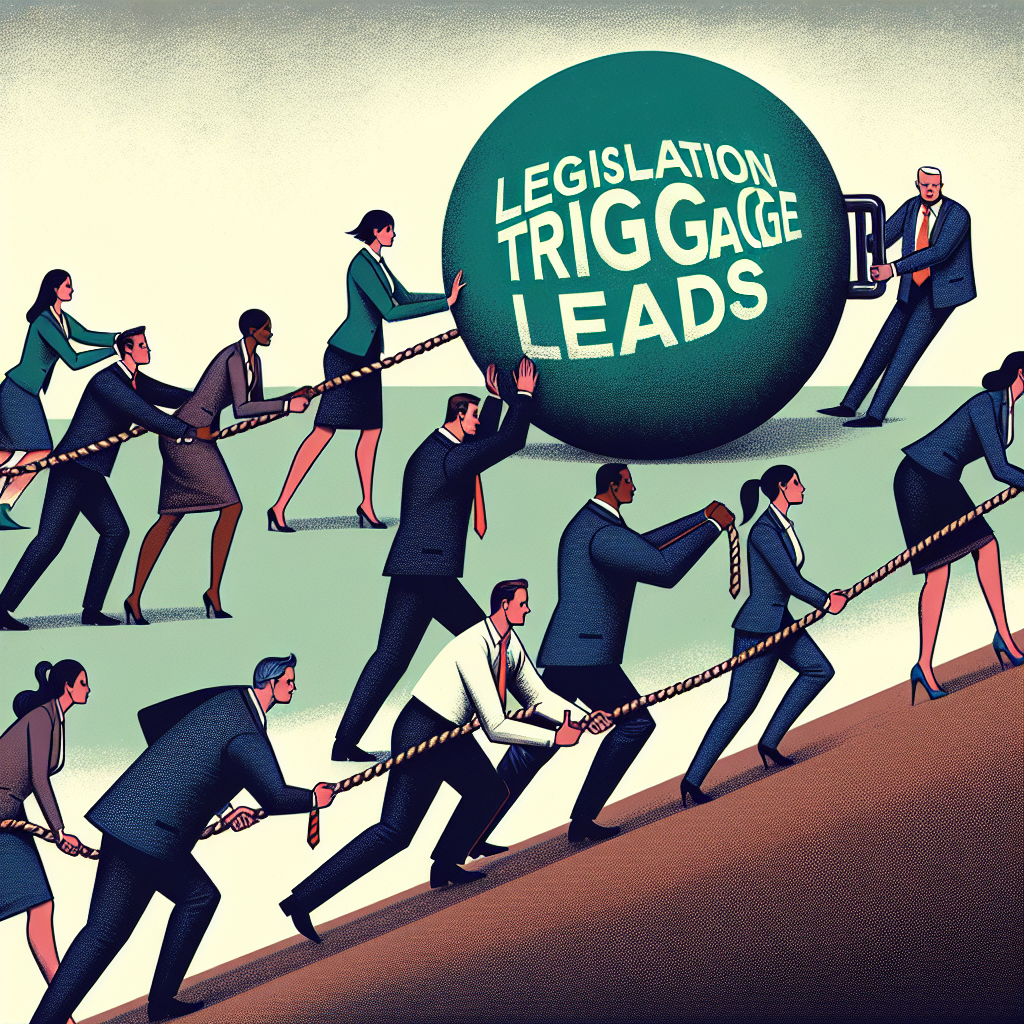Credit Bureaus Advocate for Limiting Mortgage Trigger Leads Legislation
In recent years, the practice of selling mortgage trigger leads has come under scrutiny, prompting credit bureaus to advocate for legislation that limits this practice. Mortgage trigger leads are generated when a consumer applies for a mortgage, and their credit report is pulled. This action triggers the sale of the consumer’s information to competing lenders, who then contact the consumer with alternative offers. While this practice can benefit consumers by providing them with more options, it also raises concerns about privacy and the potential for consumer harassment.
Understanding Mortgage Trigger Leads
Mortgage trigger leads are a byproduct of the credit reporting system. When a consumer applies for a mortgage, the lender requests a credit report to assess the consumer’s creditworthiness. This inquiry is recorded by credit bureaus, which then sell the information to other lenders as a “trigger lead.” These leads are valuable to lenders because they indicate a consumer’s active interest in obtaining a mortgage, making them prime targets for marketing efforts.
- Trigger leads provide lenders with a competitive edge by identifying potential customers who are actively seeking mortgage loans.
- Consumers may receive multiple offers, potentially leading to better loan terms.
- However, the practice raises privacy concerns and can lead to an overwhelming number of unsolicited calls and emails.
The Case for Limiting Trigger Leads
Credit bureaus, along with consumer advocacy groups, argue that the sale of trigger leads should be limited to protect consumer privacy and reduce the risk of harassment. They contend that while competition is beneficial, the current system can lead to negative experiences for consumers.
One of the primary concerns is the potential for consumer harassment. When a consumer’s information is sold as a trigger lead, they may receive numerous unsolicited calls and emails from lenders eager to offer their services. This can be overwhelming and intrusive, especially for consumers who are not prepared for the influx of communication.
Moreover, there are concerns about the security of consumer data. The sale of trigger leads involves sharing sensitive information, which could be mishandled or fall into the wrong hands, leading to identity theft or fraud.
Legislative Efforts and Industry Response
In response to these concerns, several legislative efforts have been proposed to limit the sale of mortgage trigger leads. These proposals aim to strike a balance between protecting consumer privacy and maintaining a competitive mortgage market.
For example, some proposed legislation seeks to require consumer consent before their information can be sold as a trigger lead. Others suggest implementing stricter regulations on how and when trigger leads can be used by lenders.
Credit bureaus have expressed support for these legislative efforts, recognizing the need to protect consumer privacy while still allowing for healthy competition in the mortgage industry. They argue that by implementing reasonable restrictions, it is possible to create a system that benefits both consumers and lenders.
Case Studies and Statistics
Several case studies highlight the impact of trigger leads on consumers. For instance, a study conducted by the Consumer Financial Protection Bureau (CFPB) found that consumers who applied for mortgages often received an average of 10 to 15 unsolicited offers within days of their initial application. This deluge of offers can be confusing and overwhelming, leading some consumers to make hasty decisions without fully understanding their options.
Statistics also show that a significant percentage of consumers are concerned about the privacy implications of trigger leads. According to a survey by the National Association of Realtors, 65% of consumers expressed discomfort with their information being sold without their explicit consent.
Conclusion
As the debate over mortgage trigger leads continues, it is clear that there is a need for balanced legislation that protects consumer privacy while fostering competition in the mortgage market. Credit bureaus, along with consumer advocacy groups, are advocating for reasonable restrictions that address the concerns of both consumers and lenders. By implementing measures such as requiring consumer consent and enhancing data security, it is possible to create a system that benefits all parties involved. Ultimately, the goal is to ensure that consumers have access to competitive mortgage offers without compromising their privacy or security.



